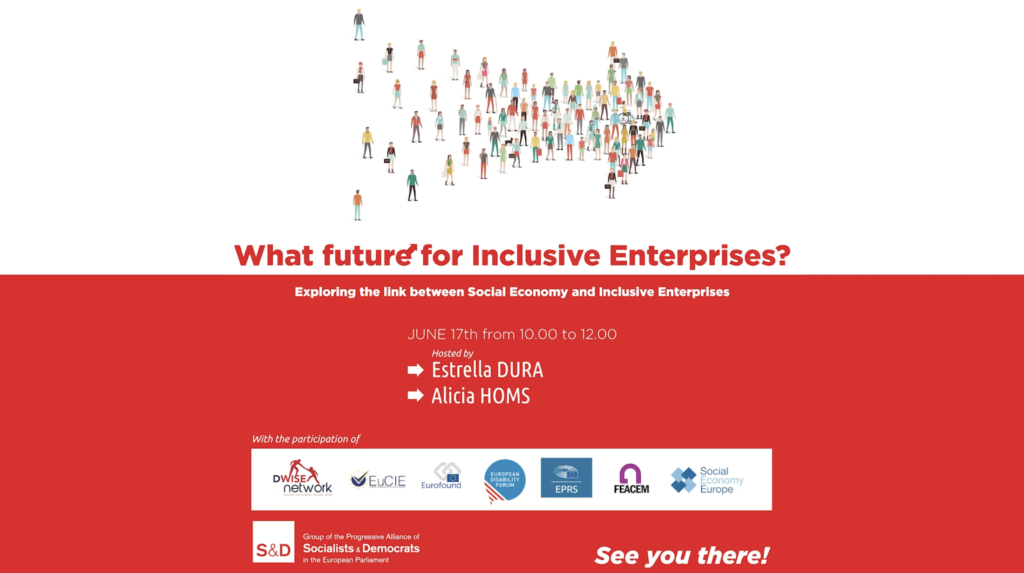On 17 June 2021, I organised a webinar that addresses the role of inclusive companies within the social economy, together with my colleague from the Spanish Socialist Delegation in the European Parliament, Alicia Homs.
The event was attended by representantives of the European Confederation of Inclusive Enterprises (EuCIE), the European Disability Forum (EDF), the Spanish Business Federation of Associations of Special Employment Centers (FEACEM), D-WISE Network, Social Economy Europe, the European Foundation for the Improvement of Living and Working Conditions (Eurofound) and the European Parliamentary Research Service (EPRS).
Despite the proximity in values and positions between inclusive companies and the social economy, the lack of awareness of disability continues to be a barrier for employing workers with disabilities, also within social economy companies. In relation to the publication of the European Commission’s social economy action plan, we considered it appropriate to bring together various actors in the field of inclusive
companies and the social economy in order to share different points of view and studies that have been carried out in this area.
The objective of the webinar “What Future for Inclusive Enterprises? Exploring the link between Social Economy and Inclusive Enterprises” was to explore the possibilities and challenges of inclusive enterprises within the social economy and help to clarify ideas and establish common definitions. It also served to take advantage of the momentum of the new Disability Strategy to strengthen the link between the social economy and inclusive enterprises, since the level of interaction between these two areas is still insufficient. Among the ideas that the panelists emphasised, was the need to materialise principle 17 of the European Pillar of Social Rights dedicated to the inclusion of people with disabilities, putting the social economy first, establishing specific objectives and indicators such as the inclusive development index that replace the already obsolete GDP and also investment indicators in public social welfare systems were highlighted. The need to act at a supranational level with European frameworks that coordinate national plans was also addressed. In this sense, the Action Plan for the Implementation of the European Pillar of Social Rights recently published by the European Commission, the new European Strategy on Disability 2020-2030 and the Action Plan on Social Economy planned for the end of the year are great opportunities to improve the results of labour inclusion of people with disabilities.
The webinar recording and agenda can be accessed here.

